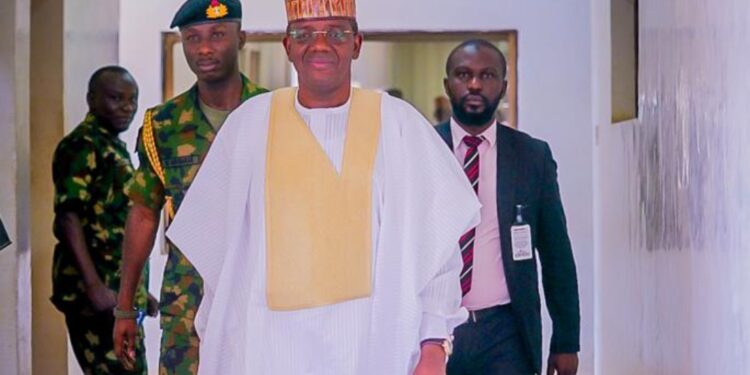A coalition of advocacy groups has urged the return of Bello Matawalle, the current Minister of State for Defence and former Zamfara State governor, to continue his efforts in combating banditry and restoring peace in the troubled state.
“Matawalle is that doctor, and Zamfara must not abandon the cure before the disease is eradicated,” said Mansur Abubakar Gusau, spokesperson for the coalition, in a statement made available to journalists on Sunday.
The group commended Matawalle’s tenure from 2019 to 2023, describing it as a period of innovative and inclusive solutions to the state’s longstanding security challenges. They called on residents and Nigerians at large to support his potential return in 2027 to “complete the vital mission of restoring lasting peace.”
Security Initiatives Lauded
The coalition highlighted Matawalle’s multifaceted approach to addressing Zamfara’s insecurity. Upon assuming office in 2019, the state was in disarray, with rampant banditry leaving communities vulnerable. Matawalle initiated peace talks with armed groups, engaged community leaders, and introduced socio-economic interventions to tackle the root causes of insecurity.
“These efforts led several bandit factions to disarm, release hostages, and reintegrate into society,” Gusau noted, adding that the administration supported those transitioning by providing vocational training, farming opportunities, and Islamic education.
For groups rejecting peace, Matawalle strengthened security forces, equipping them with vehicles and resources to protect communities. He also spearheaded regional collaborations with neighboring states, including Katsina, Kaduna, and Niger, launching joint operations to disrupt criminal networks.
Economic Reforms Address Poverty and Crime
Matawalle’s administration also addressed economic factors linked to insecurity. The Zamfara Social Investment Program (Z-SIP) provided stipends to youth and women, discouraging criminal activities. Additionally, he targeted illegal mining, a major funding source for armed groups, by advocating for a no-fly zone over Zamfara to curtail smuggling networks.
The coalition criticized the current state administration’s decision to lift the no-fly zone, warning it could reignite illegal mining activities and exacerbate insecurity.
“Matawalle’s foresight in implementing the no-fly zone addressed the economic roots of banditry,” Gusau said.
Call for 2027 Candidacy
The group described Matawalle as a leader who demonstrated that peace is achievable through courage and innovation.
“Insecurity is a disease that requires the skill of an experienced doctor,” the coalition stated, urging Nigerians to support Matawalle’s candidacy in the 2027 elections.











